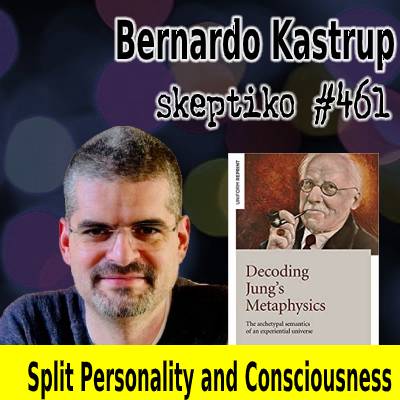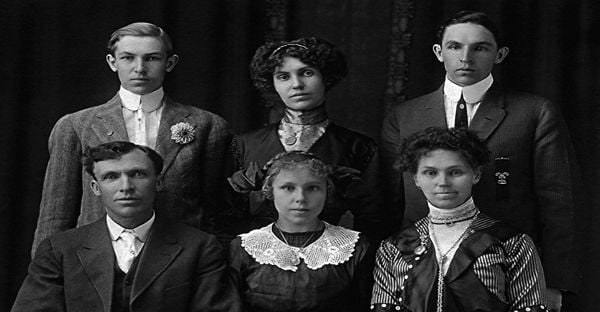Ralph Blumenthal, is a veteran NYT journalist and has written the ultimate biography of John Mack. Click here for Ralph Blumenthal's...
Tag: psychology
Dr. Bernardo Kastrup, What Split Personality Tells Us About Consciousness |461|
Dr. Bernardo Kastrup, opens up about extended consciousness, dissociative identity, and angels and demons. photo by:...
Dr. Tom Zinser, Clinical Psychologist on Difference Between Darkness and Evil |451|
Tom Zinser's clinical psychology practice took a turn when he discovered the difference between darkness and evil. photo by:...
Dr. Robert Davis, What Peak Experiences Reveal About Consciousness |419|
Dr. Robert Davis' research into peak experiences reveals multiple paths to extended consciousness realms. photo by: Skeptiko ...
Dr. Mariana Caplan – Does Yoga Work? |382|
Dr. Mariana Caplan think yoga is just what psychology and psychotherapy needs. photo by: Skeptiko Alex Tsakiris: Welcome to Skeptiko where we...
Dr. Richard Miller, for some patients, not recommending yoga is a form of malpractice |322|
This clinical psychologist, and researcher has used yoga to dramatically improve the lives of those suffering from PTSD. photo by: Spirit-Fire When...
Should family therapy include your deceased great-great-grandmother? Epigenetics meets after-death communication |302|
Dr. Dan Booth Cohen and Emily Volden merge extended consciousness and after-death communication into psychotherapy. photo by: Pip R Lagenta ...
Men like to be right — Duh! Novel experiment demonstrates link with psychic abilities |288|
Northwestern University Psychology professor Dr. Julia Mossbridge's has a novel experiment demonstrating psychic abilities among her male students. ...
217. Dr. Gary Marcus Sandbagged by Near-Death Experience Science Questions
https://youtu.be/4j3CAv3noSQ Interview examines mainstream psychology's approach to near-death experience science. Join Skeptiko host Alex Tsakiris for an interview with Dr. Gary Marcus author of, Kluge: The Haphazard Evolution of the Human Mind. During the interview Marcus explains why he’s skeptical of near-death experience science: Dr. Gary Marcus: I’m also very, very skeptical of . It doesn’t make sense to me, to be honest. It doesn’t fit with the rest of the stuff that I understand about how the brain works, which leads me to believe that something is likely being misinterpreted. I can’t promise that and I haven’t read every word on it… Alex Tsakiris: Have you read any word on it? Have you read any of the leading researchers out there? Dr. Gary Marcus: I’ve read a few words here or there but it doesn’t make sense to me. It would be like you asking me have I read anything on astrology. I mean, I know about astrology but I don’t see the causal mechanisms. Alex Tsakiris: Yeah, but it’s not really astrology. You’ve got Parnia at Cornell, you’ve got the University of Virginia researchers. You’ve got a lot of pretty well-respected people who’ve studied it for a long time and are publishing... Bruce Greyson and all those folks... Dr. Gary Marcus: I don’t doubt that there’s a phenomenon that needs to be explained but I doubt that the explanation is that the brain is not part of the experience that’s being processed. I cannot conceive of how that would be true. Alex Tsakiris: But isn’t that where it gets interesting? These guys are coming at it strictly from a medical standpoint and saying, “Look, the guy died on my table and then told me what happened during resuscitation.” That’s a medical mystery that defies explanation in our current paradigm. Isn’t that where we start? Dr. Gary Marcus: A more parsimonious explanation is the guy wasn’t really dead on the table. There was more stuff happening in the brain than you realize. It’s parsimonious because it fits with everything else we understand about the brain. Otherwise you have to invent a new causal mechanism. I’m not saying that that’s wrong, but I think the standards for doing that need to be high. (continued below) Dr. Gary Marcus's Webpage Click here for YouTube version Click here for forum discussion Play It Listen Now: Download MP3 (29 min.) Read It: Welcome to Skeptiko, where we explore controversial science with leading researchers, thinkers, and their critics. I’m your host, Alex Tsakiris, and as you just heard, my guest today is Dr. Gary Marcus. Now this is one of those interviews that requires a bit of an explanation, not so much for the content of the interview but for why I would even choose to interview Dr. Marcus in the first place. But that explanation should really come at the end, and that’s where I’ve put it. So for now, here’s my interview with Dr. Gary Marcus:
...186. Dr. Richard Grego Finds Materialism Waning at the American Psychology Association Conference
Interviews Alexander Moreira-Almeida, Erlendur Haraldsson, Robert Almeder, and Stanley Krippner discuss the relationship between mind and body,...
170. Dr. Daryl Bem Responds to Parapsychology Debunkers
Interview with Cornell University Professor Emeritus Dr. Daryl Bem looks at the reaction to his groundbreaking parapsychology experiments. Join Skeptiko host Alex Tsakiris for an interview with noted psychology professor Dr. Daryl Bem. During the interview Bem discusses the reaction to his research among parapsychology opponents: Alex Tsakiris: What do you think is going to happen with this latest round of debunking? The skeptics have risen up and it seems like a very well-organized, concerted effort to knock down your research. What do you think their game plan is? What do you think is going to happen? Dr. Daryl Bem: Well, I think the flurry of activity in the popular media will just sort of die down. When I look at Google News on it there are still four or five articles that pop up in which it just shows how successful Wiseman is at getting his point of view out. I have been replying to people who’ve asked me to reply to blogs and things of that sort. Without accusing him of actually being dishonest, he has now published the three studies that he and French and Ritchie tried to get published in several journals that rejected it. I replied with a comment on that. If there’s anything dishonest there, it’s when you publish an article, even if it’s of your own three experiments—they did three experiments that failed trying to replicate one of my experiments—you always have a literature review section where you talk about all the previous research and known research on the topic before you present your own data. What Wiseman never tells people is in Ritchie, Wiseman and French is that his online registry where he asked everyone to register, first of all he provided a deadline date. I don’t know of any serious researcher working on their own stuff who is going to drop everything and immediately do a replication... anyway, he and Ritchie and French published these three studies. Well, they knew that there were three other studies that had been submitted and completed and two of the three showed statistically significant results replicating my results. But you don’t know that from reading his article. That borders on dishonesty. Dr. Daryl Bem's Website Play It: Download MP3 (45 min.) Read It: Today we welcome Dr. Daryl Bem to Skeptiko. Dr. Bem is a very highly regarded social psychologist and Professor Emeritus from Cornell who created quite a stir last year with his paper, “Feeling the Future: Experimental Evidence for Anomalous Retroactive Influences on Cognition and Affect.” Alex Tsakiris: Dr. Bem, it’s a great pleasure to have you on Skeptiko. Thanks for joining me. Dr. Daryl Bem: Good to be here.
...83. Dr. Chris French, Extraordinary Psi Claims
Guest: Dr. Chris French of the University of London discusses his skeptical research of Dr. Rupert Sheldrake's Telephone Telepathy experiments and...
















